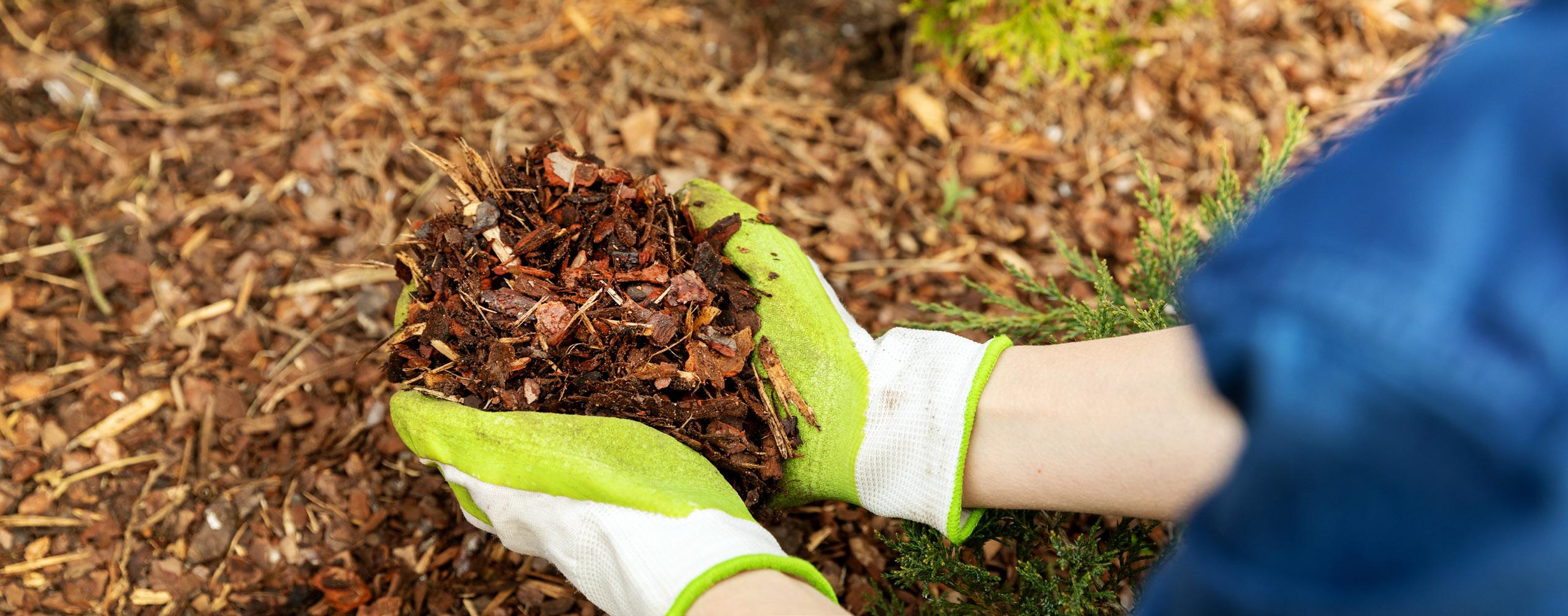
1 minute read
Mulching
Proper Mulching
Answers to down to earth questions like... How much mulch is too much mulch?
Advertisement
One of the most common questions tree owners ask is - what can I do to make sure my tree is healthy?
The answer is simple - mulch.
Trees growing in urban settings, or disturbed soils, are often missing nutrients and a layer of decomposing organic material. A properly applied layer of mulch will improve soil conditions and help regulate moisture.
The following tips will help you apply mulch properly and avoid the dreaded mulch volcano!
Decide what type of mulch to use
Organic mulches are usually derived from plants, which break down naturally and give nutrients to the soil. Examples include non-dyed woodchips, pine needles, hardwood and softwood bark, compost and leaves. See page 13 for how to make your own compost.
Inorganic mulches last longer, do not decompose and do not give nutrients back to the soil. Examples include stone, shredded rubber and crushed gravel.
The effectiveness of the mulch will depend on the type you select, and how it is applied. Mulch should be applied around the tree at a depth of 5 to 10 cm. There is a tendency to pile a thick layer of mulch against the tree trunk and taper it out as you move away from it. This is known as a mulch volcano and can cause rot issues at the base and root.
To apply the mulch, start near the trunk without touching it and work your way out to the dripline of the tree. A minimum of a one metre radius is recommended. If there is already mulch around the tree, rake it back and check the depth. You may have to remove the old mulch before you apply more. A properly mulched tree will have a uniform depth.
Benefits of mulching:
• insulates the soil and regulates soil temperatures year round • Reduces damage caused by mowers and trimmers • Increases soil fertility • Reduces moisture loss through evaporation • Gives plants and beds a neat appearance










